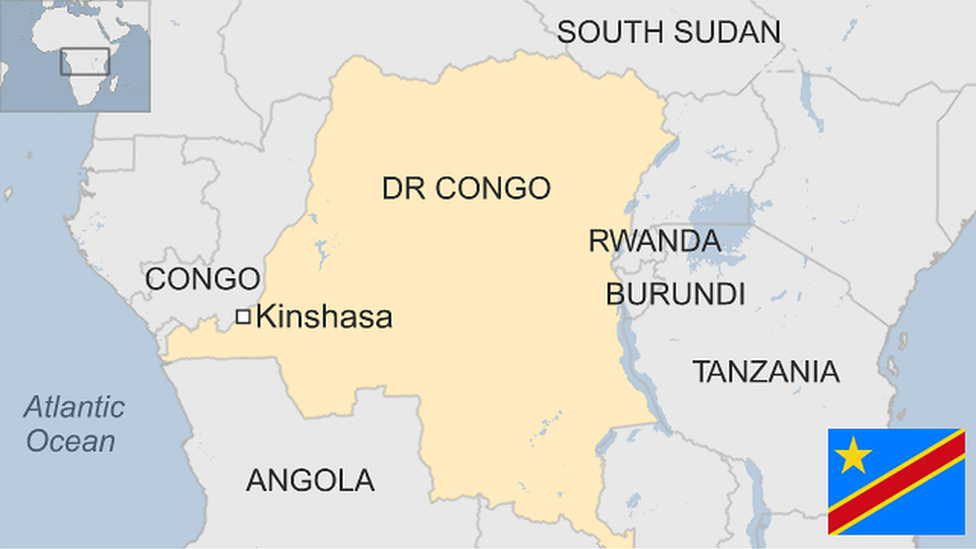DR Congo opposition candidate Fayulu says results 'not negotiable'
- Published
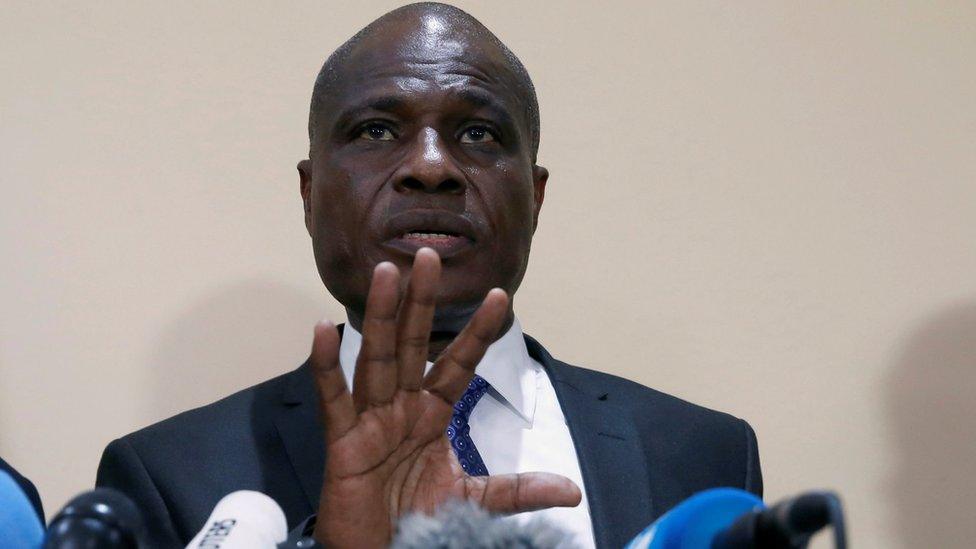
Martin Fayulu, a former oil tycoon, says authorities must announce results to avoid further tension
Opposition presidential candidate Martin Fayulu has warned election officials in the Democratic Republic of Congo not to "disguise the truth" as tensions mount over the delayed result.
Mr Fayulu said the "Congolese people already know" the result of the vote, which took place on 30 December.
A local observer group said it had witnessed "major" irregularities at counting stations.
President Joseph Kabila is due to step down after 18 years in office.
The election outcome was initially expected to be announced on Sunday - and results are now expected later on Wednesday.
Riot police have been deployed in the capital, Kinshasa, and access to the offices of the election commission has been blocked, reports the BBC's Louise Dewast from the city.
Amid growing concerns that violence could break out, Zambia's President Edgar Lungu and his South African counterpart, Cyril Ramaphosa, met to discuss the situation.
They urged the electoral commission to release the results fast to avoid suspicions and instability.
South Africa is a key ally of Mr Kabila, while Zambia hosts more than 60,000 refugees who have fled conflict in DR Congo.
Mr Kabila has promised that the polls, which were supposed to have taken place two years ago, will see the mineral-rich central African state's first orderly transfer of power since it gained independence from Belgium in 1960.
His preferred successor, former Interior Minister Emmanuel Shadary, is facing strong opposition from Mr Fayulu, an ex-oil tycoon, and Felix Tshisekedi, son of a veteran opposition leader.
On Tuesday, Mr Fayulu said DR Congo's National Electoral Commission (Ceni) must "publish the provisional results of the presidential election in the near future," adding: "The election results are not negotiable."
What is the electoral commission saying?
The electoral commission started deliberating and evaluating presidential election results on Tuesday evening, after which it will announce the winner.
The head of the commission, Corneille Nangaa, earlier said that the results from a number of polling stations still needed to be counted.
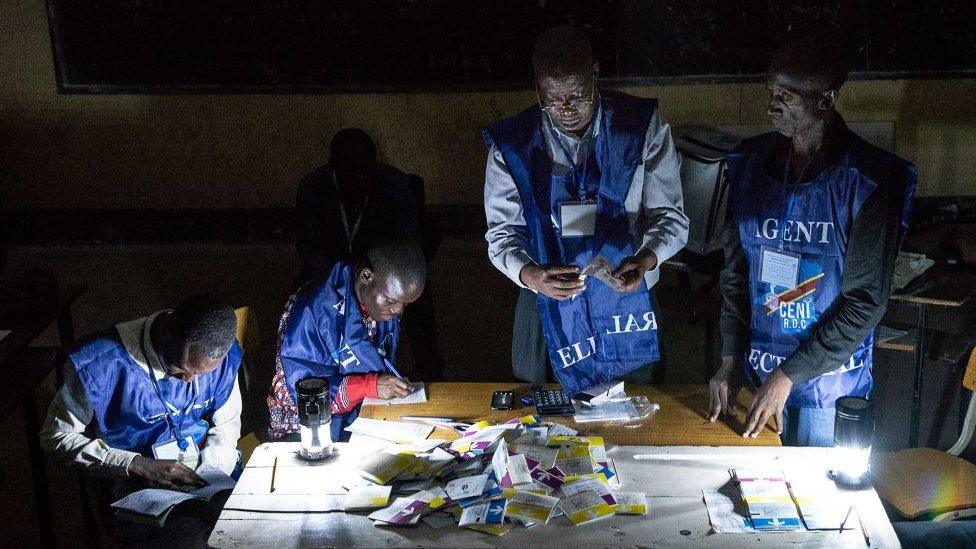
The country had 75,000 polling station and has 179 counting centres
Mr Nangaa, who has given no date for when provisional or final results will emerge, said people needed to be patient.
"It is a huge task that we can't finish in just a few hours," he told AFP news agency.
After the commission announces the result, losing candidates will be able to file challenges. The Constitutional Court would make a final ruling on the outcome within nine days of the commission's announcement.
What are the concerns of observers?
Observer group Symocel said there had been 52 "major" irregularities, including people tampering with results, in the 101 vote counting centres it had monitored.
There are 179 counting centres in DR Congo, which is about the size of Western Europe.
Symocel alleged that 92% of counting centres observed had not posted vote tally sheets outside, and 16% of the centres had relied on tallies transmitted by voting machines instead of hand-counted tallies. This was in breach of the law, the group said.
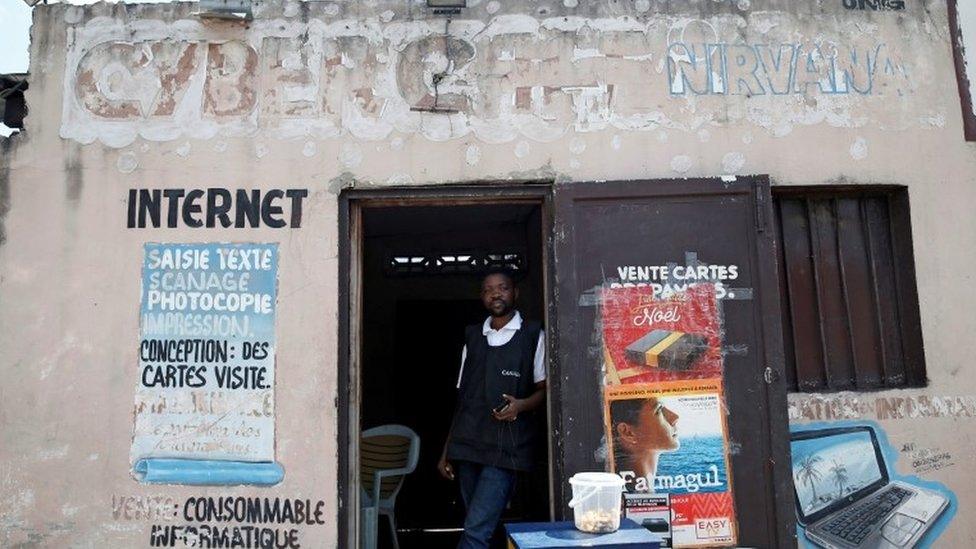
The government says it has curbed internet access to prevent the spread of false information
Meanwhile, the Protestant Church appealed to the election commission to "uphold its promises, made before God and before the nation, to offer the nation the truth, and nothing but the truth, of the ballot box."
Last week, the more influential Catholic Church, which deployed 40,000 observers during the vote, said that it knew who had won the election, and the result should be released "in keeping with truth and justice".

Why DR Congo matters:

After the 30 December vote, internet and text-messaging services were shut down nationwide in a move that the government said was necessary to guard against the spread of unofficial results.
Last week, US President Donald Trump announced that 80 troops had been sent to nearby Gabon because of the "possibility that violent demonstrations may occur" following DR Congo's vote.
They would be deployed if needed to protect US citizens and diplomatic facilities in DR Congo's capital, Kinshasa, he said.

Who are the presidential hopefuls?
There are 21 candidates, but three frontrunners:

Martin Fayulu: The ex-oil tycoon - worked for Exxon Mobil for 20 years and entered politics in 2006. He is known as the "people's soldier" for leading protests against President Kabila.

Emmanuel Shadary: Kabila's 'hardline' choice - an ex-interior minister who is under EU sanctions for alleged human rights violations in deadly crackdowns on protests. His ruthless reputation has earned him the nickname "Make It Happen".

Felix Tshisekedi: The man trying to outdo his father - son of late veteran opposition leader Etienne Tshisekedi, he has promised to make the fight against poverty his priority. Backed out of an opposition deal to have a unity candidate and ran on his own ticket with the backing of politician Vital Kamerhe.

What's the background?
Mr Kabila took over from his assassinated father Laurent in 2001. He was elected in 2006, and secured another term in controversial elections in 2011.
He was barred from running for another term under the constitution, and was supposed to step down two years ago, but the election was postponed after the electoral commission said it needed more time to register voters.
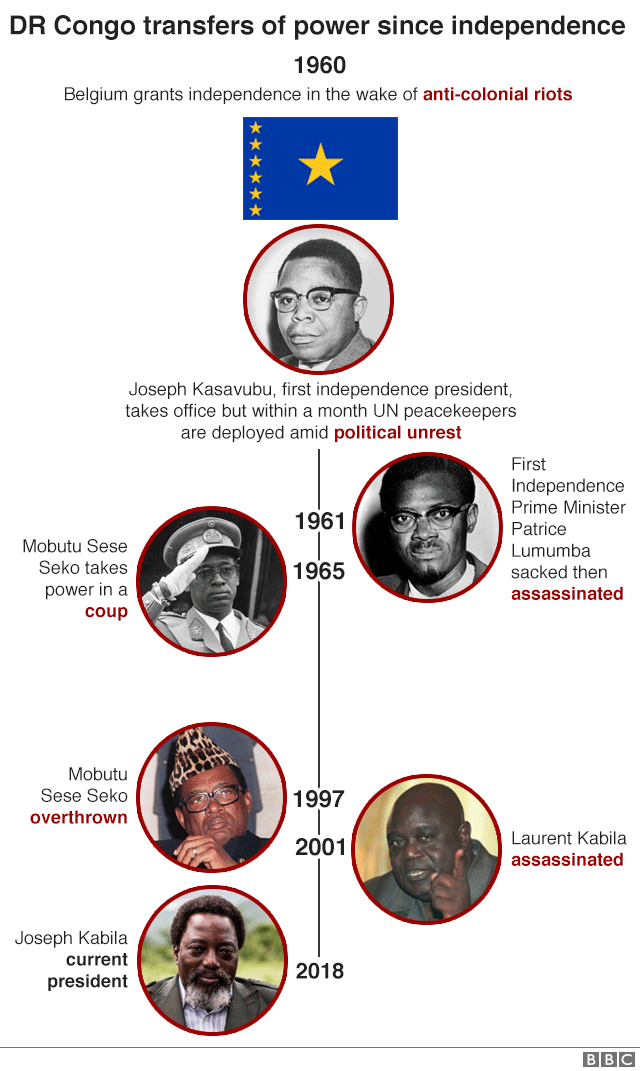

- Published19 December 2018
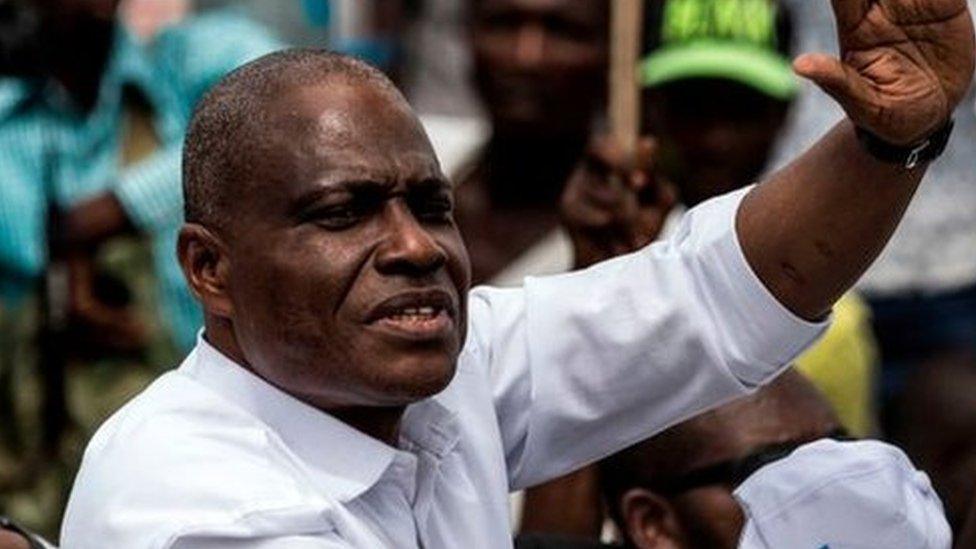
- Published6 January 2019
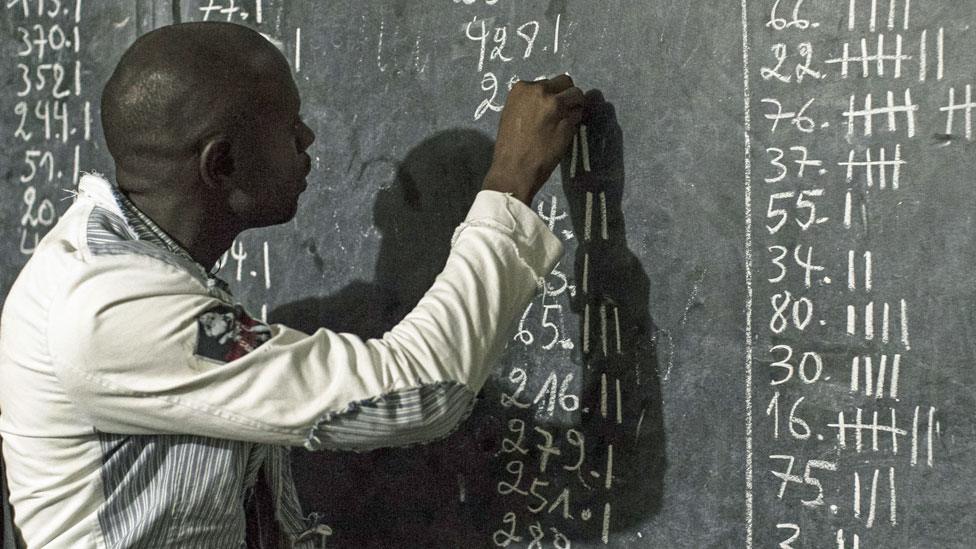
- Published5 January 2019
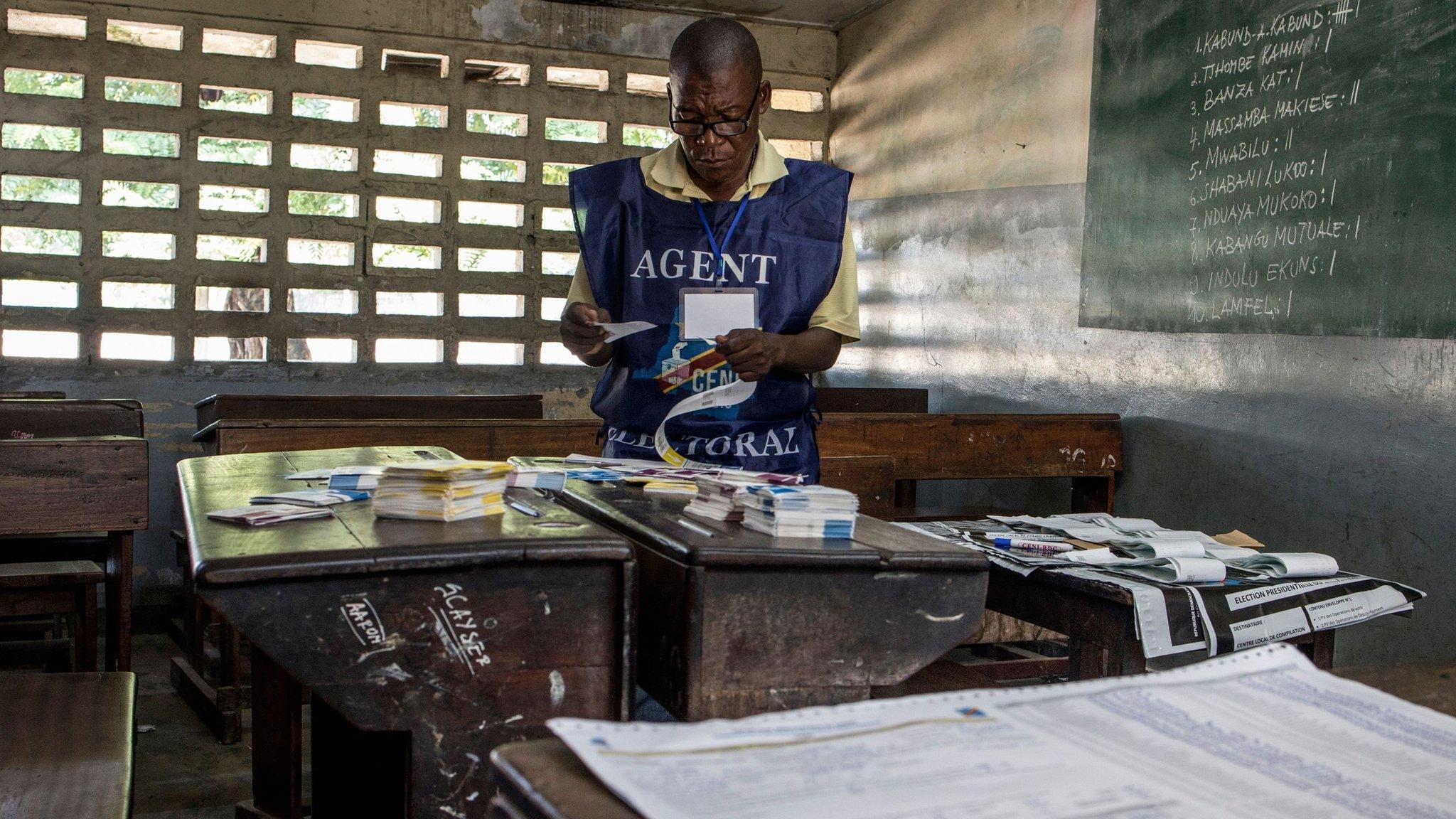
- Published31 January
